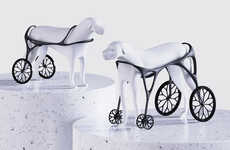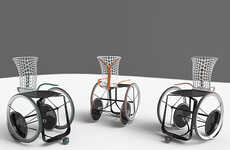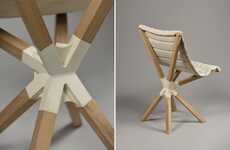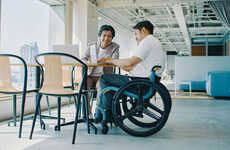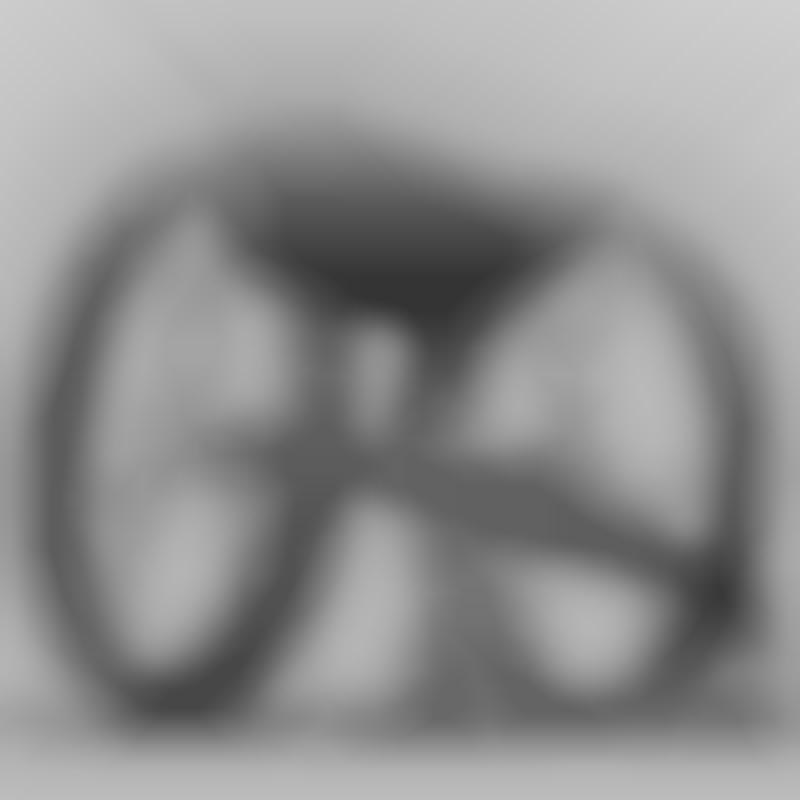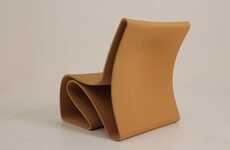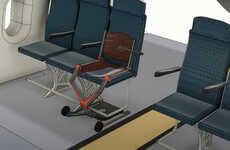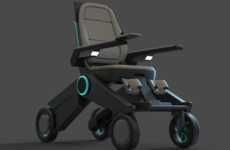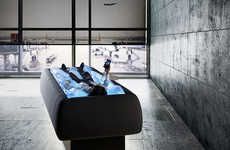
Benjamin Hubert's Mobile Chairs Can be Mass-Produced with 3D-Printing Tech
M — May 4, 2016 — Art & Design
References: normann-copenhagen & design-milk
Benjamin Hubert is a creative that has achieved a first in the design industry by creating the first ever 3D-printed mobile chair that can be mass-produced thanks to its tech-enabled engineering. The 'Go' wheelchair provides a modern, mobile and simplistic design that can be used for a variety of medical purposes to help consumers remain mobile while undergoing an injury. Each 'Go' wheelchair is personalized to the user, featuring a seat and foot bay that is customized to the person's size and height for a much more form-fitting sitting experience.
The 'Go' wheelchair was designed with the hope of improving the quality of mobile seats for consumers that require them on a daily basis. The chair features personalized components that can be rendered using biometric engineering and 3D-printing to create a much more tailored seat for long-term users.
The 'Go' wheelchair was designed with the hope of improving the quality of mobile seats for consumers that require them on a daily basis. The chair features personalized components that can be rendered using biometric engineering and 3D-printing to create a much more tailored seat for long-term users.
Trend Themes
1. Tech-enabled Engineering - Disruptive innovation opportunities include leveraging biometric engineering and 3D-printing to create personalized and tailored products.
2. Mass-produced Mobility Solutions - Disruptive innovation opportunities lie in using 3D-printing technology to mass-produce mobile chairs for consumers with mobility needs.
3. Customizable Healthcare Products - Disruptive innovation opportunities include creating personalized healthcare products using 3D-printing technology and biometric engineering.
Industry Implications
1. Design Industry - Disruptive innovation opportunities involve integrating tech-enabled engineering and 3D-printing processes to revolutionize product design.
2. Medical Devices Industry - Disruptive innovation opportunities lie in using 3D-printing technology to create personalized and mass-produced medical devices for consumers.
3. Assistive Technology Industry - Disruptive innovation opportunities involve using 3D-printing technology to create custom, personalized assistive devices for individuals with mobility needs.
5.3
Score
Popularity
Activity
Freshness

